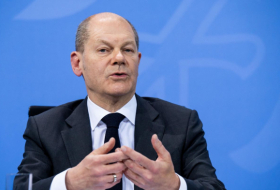April Fools' Day, the annual tradition of people and brands becoming pranksters, is Wednesday. This year, as the coronavirus pandemic wreaks havoc across the globe, some companies are reconsidering their gags.
Google said it would forgo its annual ritual of sharing April Fools' Day jokes across the company's platforms out of respect for those fighting COVID-19, according to an internal email obtained by Business Insider. The company wanted to ensure that smaller April Fools’ Day pranks and easter eggs are not published April 1 by managers, Forbes reported.
"It definitely does seem a little tone deaf to be making these kind of jokes that really have the goal of promoting your business at a time when so many people are out of work," Alex Boese, author of "The Museum of Hoaxes: A History of Outrageous Pranks and Deceptions," told.
Although the exact origin of April Fools' Day is unknown, Boese said it probably originated in the 16th century when apprentices were sent on wild goose chases for made-up items. In the 19th century, it evolved into a day when children would misbehave.
It wasn't until the 20th century that newspapers and radio stations began to prank readers and listeners, Boese said. In the 21st century, corporations began using the holiday as a marketing opportunity to make joke advertisements go viral.
In light of the severity of the pandemic, some on social media called for people to consider skipping pranks altogether this year, particularly any related to coronavirus.
Coronavirus has killed more than 3,400 people and sickened 175,000 in the USA as of Tuesday afternoon, according to the Johns Hopkins University data dashboard. Worldwide, more than 823,000 people have been infected with the virus, and more than 40,000 have died.
Boese said that although the viral messaging may die down this year, April Fools' Day will survive.
"It’s endured throughout world wars and pandemics in the past," Boese said. "The tradition will just pick up again next year. It’s lasted 500 years, it’s going to last through this pandemic."
As coronavirus cases grow, so does fraud and misinformation spreading online in the form of conspiracy theories, hoaxes and memes. Google, Facebook and Twitter joined to help combat the spread of misinformation on their platforms.
Boese said that hopefully, people will be more conscious of potential misinformation on April 1. He warned pranksters against crossing the line between humor and harm.
"Your jokes should never do any real harm to anybody; they shouldn't hurt people or potentially cause injuries," Boese said.
In such difficult times, when much of the population is staying at home, humor can bring a welcome moment of levity.
Enterprising jokesters find tidbits of humor in the world and turn them into hilarious TikToks. Some folks pull off silly, very innocent pranks such as turning their toilet bowls into funny faces.
Boese said that while brands will probably shy away from public pranks, children may find the day a "perfect opportunity" to pull tricks.
"If you have a prankster at home, somebody who loves the pranks, it's a great year to prank your family or friends at home or whoever you’re stuck at home," he said. "It’s a day that I can predict parents are going to dread."
USA TODAY
More about: fool'sday
















































